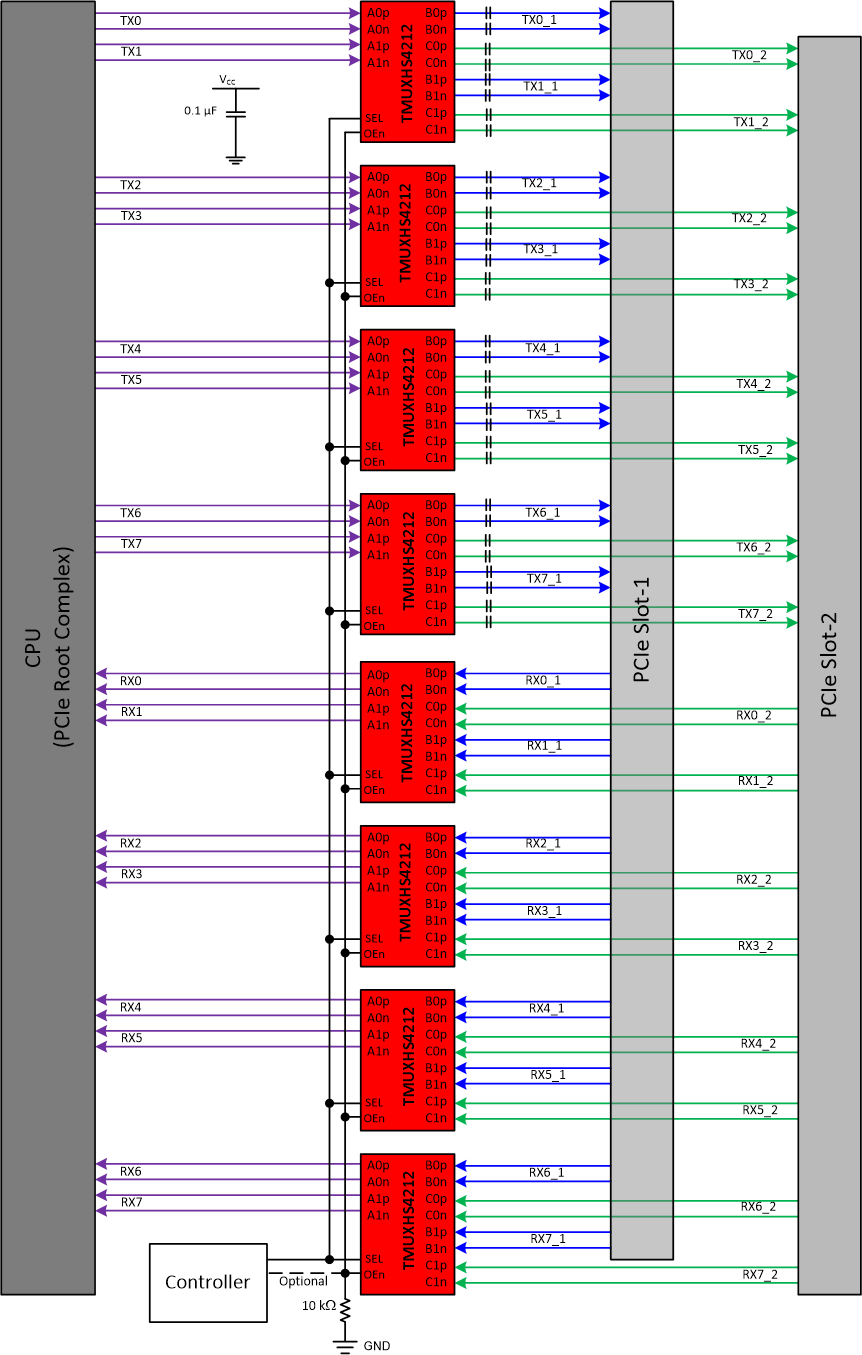JAJSIE6A May 2020 – May 2022 TMUXHS4212
PRODUCTION DATA
- 1 特長
- 2 アプリケーション
- 3 概要
- 4 Revision History
- 5 Pin Configuration and Functions
- 6 Specifications
- 7 Parameter Measurement Information
- 8 Detailed Description
- 9 Application and Implementation
- 10Power Supply Recommendations
- 11Layout
- 12Device and Documentation Support
- 13Mechanical, Packaging, and Orderable Information
パッケージ・オプション
メカニカル・データ(パッケージ|ピン)
- RKS|20
サーマルパッド・メカニカル・データ
- RKS|20
発注情報
9.2.2 PCIe Lane Muxing
The TMUXHS4212 can be used to switch PCIe lanes between two slots. In many PC and server motherboards, the CPU does not have enough PCIe lanes to provide desired system flexibility for end customers. In such applications, the TMUXHS4212 can be used to switch PCIe TX and RX lanes between two slots. Figure 9-7 provides a schematic where eight TMUXHS4212 devices are used to switch eight PCIe TX and eight RX lanes. Note: the common mode voltage (CMV) bias for the TMUXHS4212 must be within the range of 0 – 1.8 V. In implementations where receiver CMV bias of a PCIe root complex or an end point can not be ensured within the CMV range, additional DC blocking capacitors and appropriate CMV biasing must be implemented.
 Figure 9-7 PCIe Lane Muxing
Figure 9-7 PCIe Lane Muxing